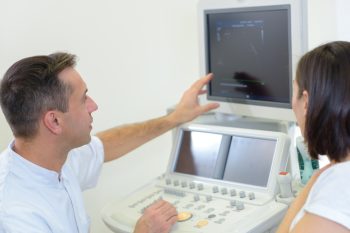Pregnancy is an exciting time for any woman, but it can also be filled with anxiety and worry. Unfortunately, sometimes things don’t go as planned and a non-viable pregnancy can occur. What are non-viable pregnancy symptoms ?
A non-viable pregnancy is one where the pregnancy is not developing properly or has stopped growing. While this is heartbreaking news, it’s important to understand the symptoms and how to cope with them.
In this blog post, we’ll discuss the common symptoms of a non-viable pregnancy and provide some tips on how to cope during this difficult time.
Symptoms of non-viable pregnancy
One of the most common symptoms of a non-viable pregnancy is vaginal bleeding. This can range from light spotting to heavy bleeding, and can occur at any point during the pregnancy.
Cramping and abdominal pain are also common symptoms, and can range from mild discomfort to severe.

Another symptom is a decrease in pregnancy symptoms. This can include a decrease in morning sickness, breast tenderness, and fatigue.
It’s important to note that not all women will experience all of these symptoms, but any combination of them should be discussed with a healthcare provider.
Diagnosis
If a non-viable pregnancy is suspected, a healthcare provider will perform an ultrasound to confirm the diagnosis.
If there is no heartbeat or the baby is not growing properly, a non-viable pregnancy will be diagnosed.

It’s important to understand that a non-viable pregnancy is not the result of anything the mother has done, and it’s not her fault.
Coping
Coping with a non-viable pregnancy can be difficult, but it’s important to take the time to process the news and seek support.
It’s important to talk to your healthcare provider about your options, which can include waiting for a natural miscarriage, taking medication to help the pregnancy pass, or undergoing a surgical procedure.
It’s also important to seek emotional support, whether it’s from a partner, family member, or healthcare provider. Some women may benefit from talking to a therapist or joining a support group.

Self-Care
Self-care is an important part of coping with a non-viable pregnancy. It’s important to take the time to rest, both physically and emotionally.

This can include taking time off work, getting enough sleep, and taking a break from social media or anything else that may cause stress.
It’s also important to pay attention to your physical health, and to seek medical attention if there are any concerning symptoms.
Moving Forward
Moving forward after a non-viable pregnancy can be difficult, but it’s important to know that there is hope for the future.
Many women go on to have successful pregnancies after experiencing a non-viable pregnancy. It’s important to take the time to heal both physically and emotionally, and to seek support when needed.
A non-viable pregnancy is a difficult and heart-wrenching experience for any woman. However, it’s important to understand the symptoms and how to cope during this difficult time.
Seeking support, taking the time for self-care, and moving forward when you’re ready can help you navigate this challenging experience. Remember, you’re not alone and there is hope for the future.


